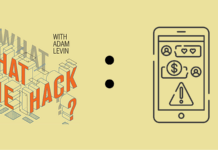It’s no secret the internet doesn’t always bring out the best in people. The relative anonymity and global sprawl of digital life make it the ideal environment for scams, trolling and other kinds of bad behavior online.
I host a podcast about cybersecurity, and was pondering how to put the issues we all face in our digital lives in a memorable form, and here’s what I came up with: The Seven Digital Sins:
- Pride: Thinking you’re safe.
According to the FTC, U.S. citizens reported roughly $10 billion in losses to cybercrime in 2023, up $1 billion from the year before; far more scams probably went unreported. No matter how tech-savvy you are, you’re vulnerable.
- Greed: Crypto scams
Cryptocurrency initially promised the ability to freely transfer money without pesky laws and regulations. Cybercriminals, scammers, and even nation-state actors, have profited crypto-based scams.
- Lust: Sextortion
Sextortion scams are actively targeting U.S. teens and tweens, specifically males ages 14 to 17. The consequences, as covered on my podcast, are more than financial: At least 20 suicides have been attributed to them since 2021.
- Envy: Social Media
Does it seem like all of your former college classmates are living fitter, happier and more productive lives than you? Does it make you sad? Heavy social media usage has been linked to an increased risk of depression, anxiety and suicidal ideation.
- Gluttony: Screen time
Your eyesight, sleep, and overall mental well-being are impacted by excessive screen time. It’s worse for children: A study found that an hour a day for youth is associated with less curiosity, self-control, emotional stability and higher-than-average levels of depression and anxiety.
- Wrath: Internet Trolling
One-third of youth and forty percent of adults have experienced some form of cyberbullying and/or online harassment. It’s not just casual heckling either; online trolling has been associated with sadism, psychopathy and a litany of other disorders.
- Sloth: Reusing passwords
62 percent of internet users keep the same password for multiple accounts. Data breaches keep breaking records year after year. Using strong and unique passwords might not be anyone’s idea of fun, but it’s a blast compared to having your identity stolen online.










